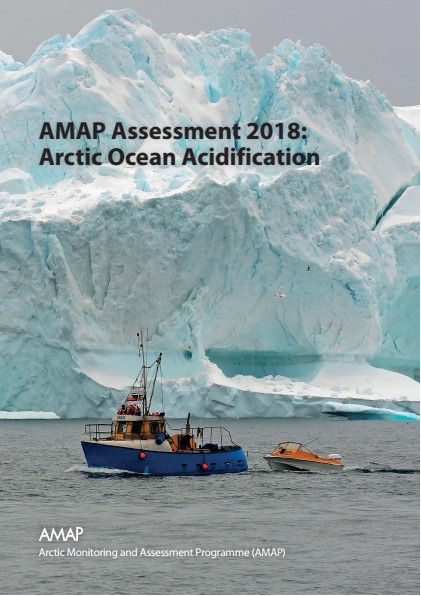The “Arctic Monitoring and Assessment Programme (AMAP) 2018: Arctic Ocean Acidification” has been released recently, which was led by Professor Richard Bellerby, the Assessment Chair of AMAP. The continuing acidification of the Arctic Ocean is projected to have significant ecological and socio-economic impacts over coming decades, with consequences both for local communities and globally. The major findings can be summarized as:
• Arctic marine waters are experiencing widespread and rapid ocean acidification with the primary driver being uptake of carbon dioxide emitted to the atmosphere by human activities.
•• The Arctic Ocean is especially vulnerable to ocean acidification, which is not uniform across the Arctic Ocean.
•• Arctic marine ecosystems are highly likely to undergo significant change due to ocean acidification, with direct and indirect effects on Arctic marine life.
•• It is likely that some marine organisms will respond positively to new conditions associated with ocean acidification, while others will be disadvantaged, possibly to the point of local extinction.
This is the overarching finding of the 2018 Arctic Ocean Acidification Assessment, presented on 2018 Arctic Biodiversity Congress, 10th of October. The assessment, conducted by the Arctic Monitoring and Assessment Programme (AMAP) on behalf of the Arctic Council.
Annotation: *1. The AMAP is one of six Working Groups of the Arctic Council. AMAP's work is directed by the Ministers of the Arctic Council and their Senior Arctic Officials, who have requested AMAP to also support international processes that work to reduce the global threats from contaminants and climate change. These include the UN Framework Convention on Climate Change, UNEP's Stockholm Convention on Persistent Organic Pollutants and Minimata Convention on mercury, etc. *2. The “AMAP 2018: Arctic Ocean Acidification” report can be downloaded from: https://www.amap.no/documents/doc/amap-assessment-2018-arctic-ocean-acid...

